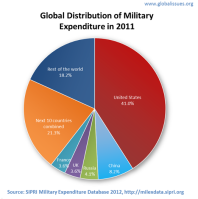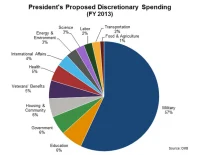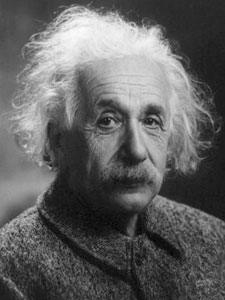Want someone to blame for your credit card bills?
On this date, the banker Claude de Sachinus wrote to John Calvin, whom he described as a brother (frère) in the faith, and asked him for his opinion on levying interest. Contemporaries, he said, were of the view that levying interest, in so far as it was honest, fair (“une sorte d’usure honnête”), and in moderation (the right “proportion”), could also be advocated as Christian. But for him, indebted as he was to the Reformation, Holy Scripture alone was the criterion, even if it ran counter to his own business interests.
Calvin for his part, in great intellectual honesty, wanted to do justice to the biblical text which in the Old Testament pronounces a prohibition on usury and sought to interpret it for his time. He did this in a long letter, now known as De Usuris Responsum, which in all probability was addressed to the banker (although not published until 1575). In his letter:
- After a short introduction, he began his argument with “‘First, there is no scriptural passage that totally bans all usury”.
- He then makes the claim, “For Christ’s statement, which is commonly esteemed to manifest this [the total ban on all usury], but which has to do with lending, has been falsely applied to usury”, reminding the reader of the simple but often neglected fact that just because Christians have (perhaps for centuries) related a saying of Scripture to discussion of a particular moral issue does not infallibly prove that such a text is being correctly interpreted or that it is right to appeal to it in their moral argument.
- Calvin paid close attention to the plain sense of the text in its original languages and in the original context of that text. Calvin’s argument against a blanket prohibition on usury is therefore in part a careful study of key Hebrew terms showing that because the Hebrew word tok can generally mean “defraud”, ‘it can be translated otherwise than “usury” and that other terms refer to usury which “eats away at its victims”‘.
- Calvin was quite frank about the strength of biblical opposition to usury, speaking in his letter of “the Holy Spirit’s anger against usurers” displayed in the prophets and psalms and even acknowledging that “the Holy Spirit … advises all holy men, who praise and fear God, to abstain from usury”. His commentary on Ps 15.5 admitted that David seems to condemn all kinds of usury in general, and without exception. Nevertheless, despite statements such as these his letter still maintained that “we need not conclude that all usury is forbidden”.
- Calvin then turned to the rationale offered in Lev 25:35-36 to argue that “the end for which the law was framed was that men should not cruelly oppress the poor”. This then qualifies Ezekiel who “seems to condemn the taking of any interest whatever upon money lent; but he doubtless has an eye to the unjust and crafty art of gaining, by which the rich devoured the poor people”. In effect, Calvin was arguing that the purpose (or justification) behind a biblical moral rule carries greater weight than the rule itself.
- Calvin argued that “we ought not to judge usury according to a few passages of scripture, but in accordance with the principle of equity”. In stating his limits on usury, he insisted that “everything should be examined in the light of Christ’s precept: Do unto others as you would have them do unto you. This precept is applicable every time” and argues that what is lawful in regard to usury is to be based on “a principle derived from the Word of God”.
- The crucial paragraph in Calvin’s letter followed his discussion of Ezekiel which concluded that “the prophets only condemned usury as severely as they did because it was expressly prohibited for Jews to do”. It reads as follows:
Today, a similar objection against usury is raised by some who argue that since the Jews were prohibited from practicing it, we too, on the basis of our fraternal union, ought not to practice it. To that I respond that a political union is different. The situation in which God brought the Jews together, combined with other circumstances, made commerce without usury apt among them. Our situation is quite different. For that reason, I am unwilling to condemn it, so long as it is practiced with equity and charity.
- In his rejection of the tradition’s appeal to Lk 6.35 as referring to usury, Calvin highlighted Christ’s command “to lend to those from whom no hope of repayment is possible” and called on Christians “to help the poor” as “Christ’s words far more emphasize our remembering the poor than our remembering the rich”. He insisted that nobody should take interest from the poor and those lending must not neglect their duties or disdain their poor brothers.
It is important to recognize what a radical change Calvin’s work represented. In the words of John T Noonan:
Once upon a time, certainly from at least 1150 to 1550, seeking, receiving, or hoping for anything beyond one’s principal – in other words, looking for profit – on a loan constituted the mortal sin of usury. The doctrine was enunciated by popes, expressed by three ecumenical councils, proclaimed by bishops, and taught unanimously by theologians. The doctrine was not some obscure, hole-in-the-corner affection, but stood astride the European credit markets, at least as much as the parallel Islamic ban of usury governs Muslim countries today…The great central moral fact was that usury, understood as profit on a loan, was forbidden as contrary to the natural law, as contrary to the law of the church, and as contrary to the law of the gospel.
In fact, Martin Luther regarded the biblical prohibition of usury as permanently binding. In his 1524 sermon on trade and usury, Luther lashed out at any attempt to charge interest. In his view, Christians “should willingly and gladly lend money without any charge.” The Elizabethan Protestant bishop John Jewel reflected the views of his age when he raged from his pulpit against the iniquities of usury. “It is theft, it is the murdering of our brethren, it is the curse of God and the curse of the people.” This uncompromising opposition to usury was embodied in a statute passed by the English Parliament in 1571, which had the unforeseen and unintended effect of legitimating usury at a fixed rate of 10 percent.
It is generally acknowledged by those who have studied Calvin’s economic and political views that he was the first of the Reformers to give a theological defense of the practice of lending money at interest.
Calvin’s views, which were seen by many as running counter to the clear meaning of the Bible, took some time to become accepted. By the middle of the seventeenth century – more than one hundred years after Calvin’s groundbreaking analysis – usury was fully regarded as acceptable. Protestant jurists such as Hugo Grotius and Samuel Pufendorf supplemented Calvin’s theological analysis with clarifications of economic concepts, especially in relation to price and value, that finally removed any remaining scruples about lending money at interest. The Catholic church did not sanction usury, however, until 1830, apparently in response to the widespread acceptance of the practice within predominantly Protestant western Europe.
References:
- Alister McGrath. Christianity’s Dangerous Idea: The Protestant Revolution-A History from the Sixteenth Century to the Twenty-First. (New York: Harper Collins Publishers, 2007).




























You must be logged in to post a comment.